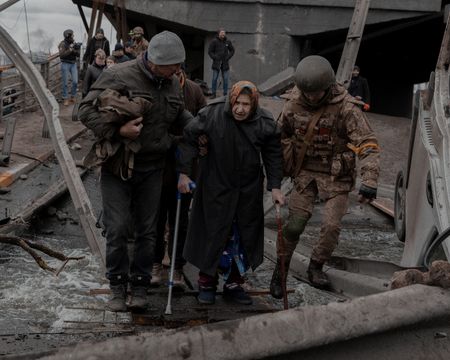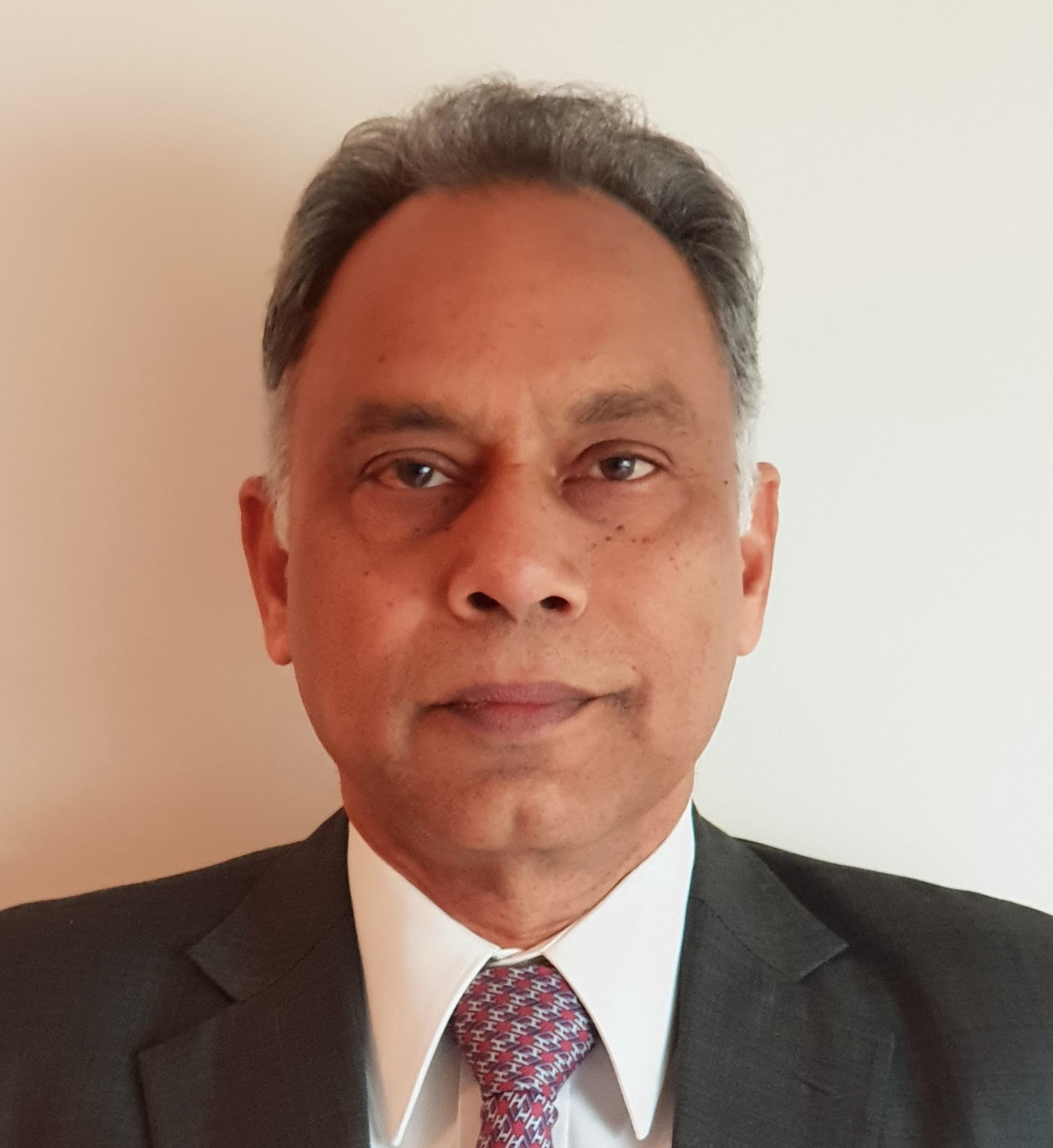
Ukraine – The Perils of Neutrality

Putin’s invasion of Ukraine is not going as planned. President Zelensky refuses to flee. The former comedian is standing up to Russia and Putin does not find his new act funny. The longer Russian troops take to conquer Ukraine the fiercer will be their attacks and more gruesome the civilian casualties. Putin has raised the stakes to catastrophic levels by threatening to use nuclear weapons.
Putin’s invasion is highly unpopular in the world and there is good reason to believe that the Russian people are also not happy with it. There have been demonstrations by Russians in St. Petersburg and Putin has had to enact a law imposing imprisonment for such opposition. In the UN General Assembly, only four countries stood by Russia – Belarus, North Korea, Syria and Eritrea. Three-fourths of the members supported the resolution against Russia. India, however, abstained on three resolutions in the United Nations.
Putin has justified his “special military operation” by invoking the right to protect the Russian minority in Ukraine and citing the threat to Russia’s security if Ukraine were to join NATO. The former emanates from the concept of R2P and the latter from the idea of sphere of influence. R2P – responsibility to protect – was developed in the West and exercised by it on a few occasions. Russia never supported the idea and, after the Western invasion of Libya in 2011, it refused to let the Security Council endorse any further “humanitarian intervention”.
Spheres of influence were drawn up by imperial powers till as recently as in Yalta in 1945, towards the end of World War II. In 1962, the US objected to the stationing of Russian missiles in Cuba and in the subsequent negotiations agreed to withdraw its own missiles from Turkey. All big powers have claimed spheres of influence to buttress national security. Putin’s arguments also draw strength from the past abuses of international law by the US. The list of countries the US has invaded or intervened in is long and it has little moral authority to sermonise others. When the cold war ended, the United States had agreed that it would not extend NATO into East Europe, but it soon went back on its word.
However, there is little point in debating the case on its merits. The real issue is that ever since Putin rebuilt Russia and rejuvenated its foreign policy, the West has been wary of him. It had allowed Russia to slip into the Soviet Union’s seat as a permanent member of the Security Council without so much as a vote in the General Assembly in the hope that it would be a loyal camp follower. In the first two decades, Russia allowed the US to take military action in a number of countries with Security Council authorisation. It used the veto only six times, as against thirteen times by the US and five by China in this period. This changed after the West’s invasion of Libya in 2011. Russia refused to let the Security Council authorise any coercive action in Syria. It vetoed more than a dozen Western resolutions against the Assad regime.
If the US found this galling, it was positively infuriated when Putin skilfully annexed Crimea from Ukraine in 2014. It imposed sanctions on Russia and was on the lookout for an opportunity to settle scores. Putin has now given the US an opportunity as golden as its invasion of Afghanistan in 1979. Biden has taken a leaf out of Reagan’s book on the Afghanistan war. He has declared that he will not send American troops to Ukraine or even enforce a no-fly zone on the plea that this will escalate the conflict. This means that Biden wants to make the Ukrainians fight Russia just the way the Afghan mujahideen did. He intends to bleed Russia in a slow war of attrition.
India is in a bind on Ukraine and is unwilling to take sides. It has never supported either R2P or spheres of influence but it is convinced that its national interest lies in not abandoning Russia. Its faith in Russia’s ability and willingness to help it is as deep as its distrust of the US. India’s military continues to be heavily dependent on Russia for weapons and spares and it fears that condemning Russia will affect supplies. When the Soviet Union disintegrated its defence supplies broke down and India faced a serious crisis. Unable to build its own defence manufacturing industry, it gratefully turned back to Russia when Putin restored the Russian armament industry.
There is also a persistent belief in India that it needs Russia’s veto in the Security Council. The Soviet Union used its veto six times between 1957 and 1971 to protect India from hostile resolutions on Kashmir, Goa and the Bangladesh war.
However, India’s neutrality is not being viewed with any sympathy in the countries which supported the resolutions against Russia. This is compounded by some Indian political observers, never averse to taking up a debating challenge with Americans, jumping to Putin’s defence. Defending a weak case requires counterattack and these observers are busy recounting America’s misdeeds and intrigues. It is not surprising that India’s neutrality is being seen as condoning Putin’s invasion and a throwback to its anti-America days.
India must understand that this is not merely a matter between Russia and the US. Putin has few supporters left in the world and India is going against world opinion by not taking a stand against him. Russia has violated the sovereignty and territorial integrity of a smaller country and unleashed a humanitarian tragedy. There is no reason for India to besmirch its reputation by sitting on the fence.
Even if one were to argue that India should be guided its self-interest, it is difficult to understand how this is served by sticking to a former super power that is now heavily dependent on China. Russia’s dependence on China will increase with the new sanctions imposed by the West. India would be naïve to believe that it can bank on Putin to support it against China. For the past few years, it has wisely and painstakingly cultivated relations with the Quad and the countries of Southeast Asia to meet the China threat. By not condemning the invasion India is jeopardising its relations not only with the US but also a host of other major countries of the Asia-Pacific.
As for Russia’s defence supplies, the sooner India ends it the better. India cannot hope to become a world power with foreign weapons. The opportunity provided by this crisis to build India’s defence manufacturing should not be missed. Russia’s arms manufacturers will be hit by western sanctions on critical technologies and financial sanctions. This will certainly affect supplies to India. A senior officer of the Indian Air Force has found it necessary to reassure the country that the disruption will not affect us “significantly”.
India should also ensure that it never isolates itself so badly that it needs Russia’s veto in the Security Council. This veto came at a high price in the past and will become costlier as China’s influence over Russia grows. After 1971, India has not run the risk of being out-voted in the Security Council. However, if its obsession with Putin persists it may once again find itself isolated and exposed.
********************
Disclaimer
The opinions expressed in this article are the author’s own and do not reflect the views of Chanakya Forum. All information provided in this article including timeliness, completeness, accuracy, suitability or validity of information referenced therein, is the sole responsibility of the author. www.chanakyaforum.com does not assume any responsibility for the same.
Chanakya Forum is now on . Click here to join our channel (@ChanakyaForum) and stay updated with the latest headlines and articles.
Important
We work round the clock to bring you the finest articles and updates from around the world. There is a team that works tirelessly to ensure that you have a seamless reading experience. But all this costs money. Please support us so that we keep doing what we do best. Happy Reading
Support Us





















POST COMMENTS (3)
Kalidan Singh
Girish
mukesh.naik